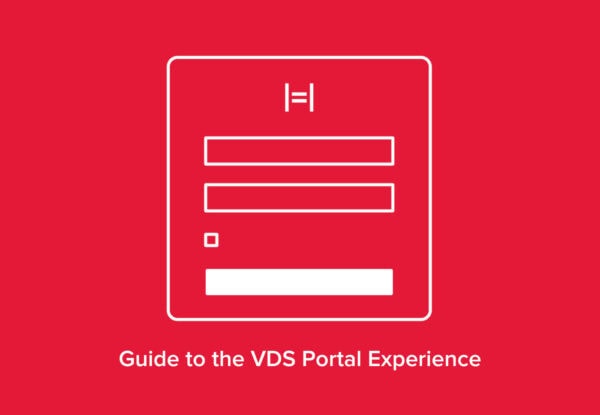
Congratulations on acquiring a Virtual Dedicated Server from Hivelocity! We’re excited to have you onboard and cannot wait to provide you with excellent service around the clock. Your virtual dedicated server can be managed through the myVelocity customer portal which will allow you to take control of your virtual dedicated server. The features involved with the virtual dedicated server management include the ability to control the power status of your device, reloading your VDS with a new OS, and viewing and modifying many various management aspects.
Finding Your VDS in myVelocity
To find your VDS, proceed with the following steps.
- First, head over to Hivelocity.net and log in to myVelocity.
- Once you’ve gone through the login process. The screen below will appear, listing all of your current devices.
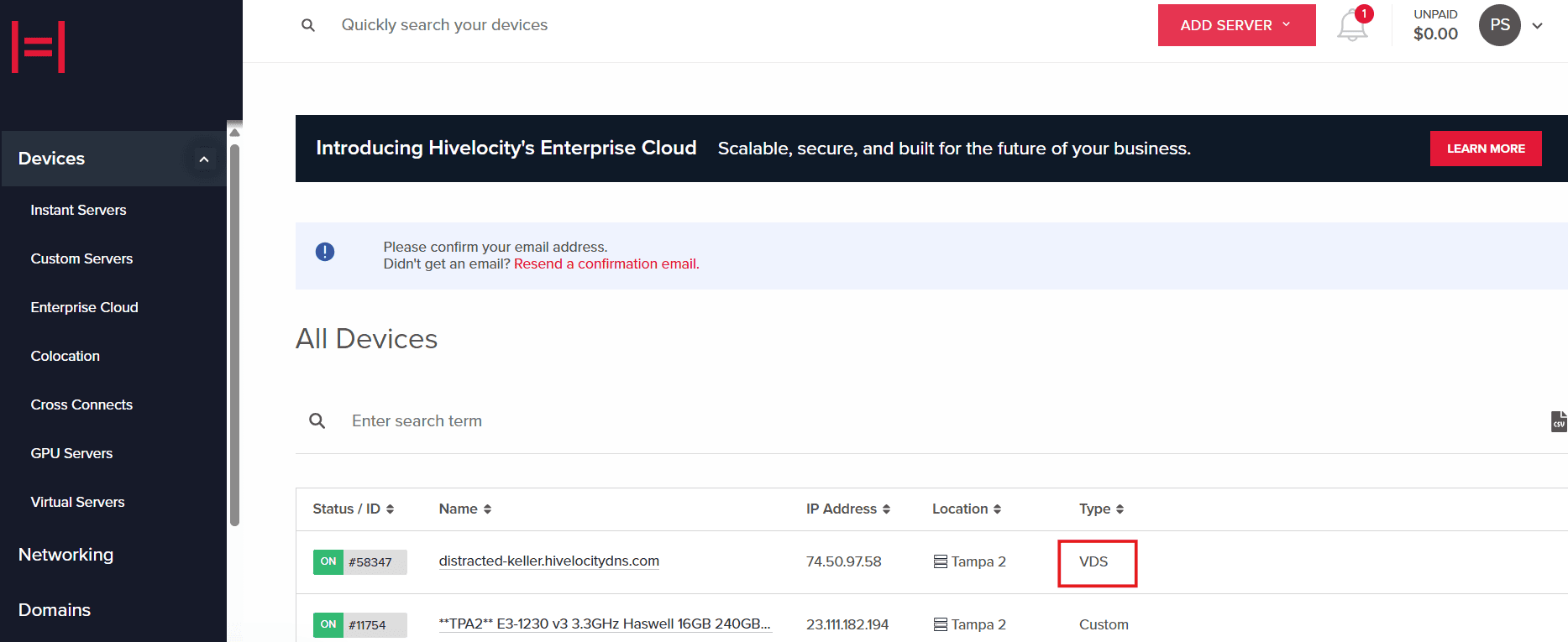
Overall Device View in myVelocity - You can note which device is a VDS by looking at the Type column.
- You can note which device is a VDS by looking at the Type column.
- Press on the device ID you wish to view. For this example, we will select device 58347 from the list above.
Device Details Tab
Once you’ve navigated to the VDS of choice, the Device Details page will be displayed. This page contains vital information regarding your VDS.
This page contains the following important information:
- Your public IP, including your IPv6 IP, if applicable.
- Your VDS hardware details.
- The ability to restart, power off or on, reload the VDS with a new OS, and use a virtual console to control it via the browser.
- Your temporary password and username available in the first few days after you purchase a VDS.
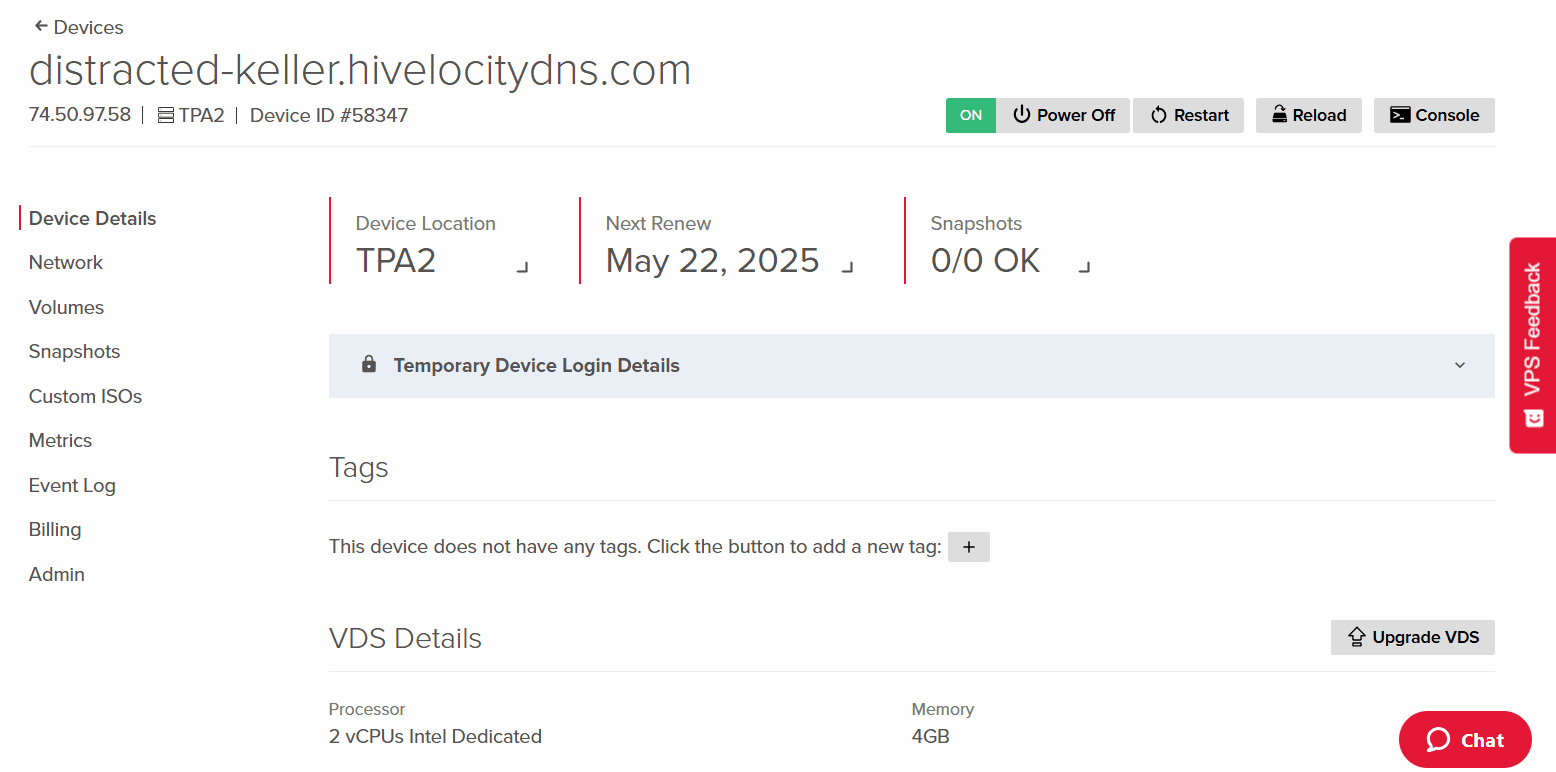
Network Tab
The Network Page of your VDS includes critical information regarding your Primary assignment and any additional IP assignments such as IPv6.
The information on this page includes the following items:
- External IP
- Default Gateway
- Netmask
- Subnet
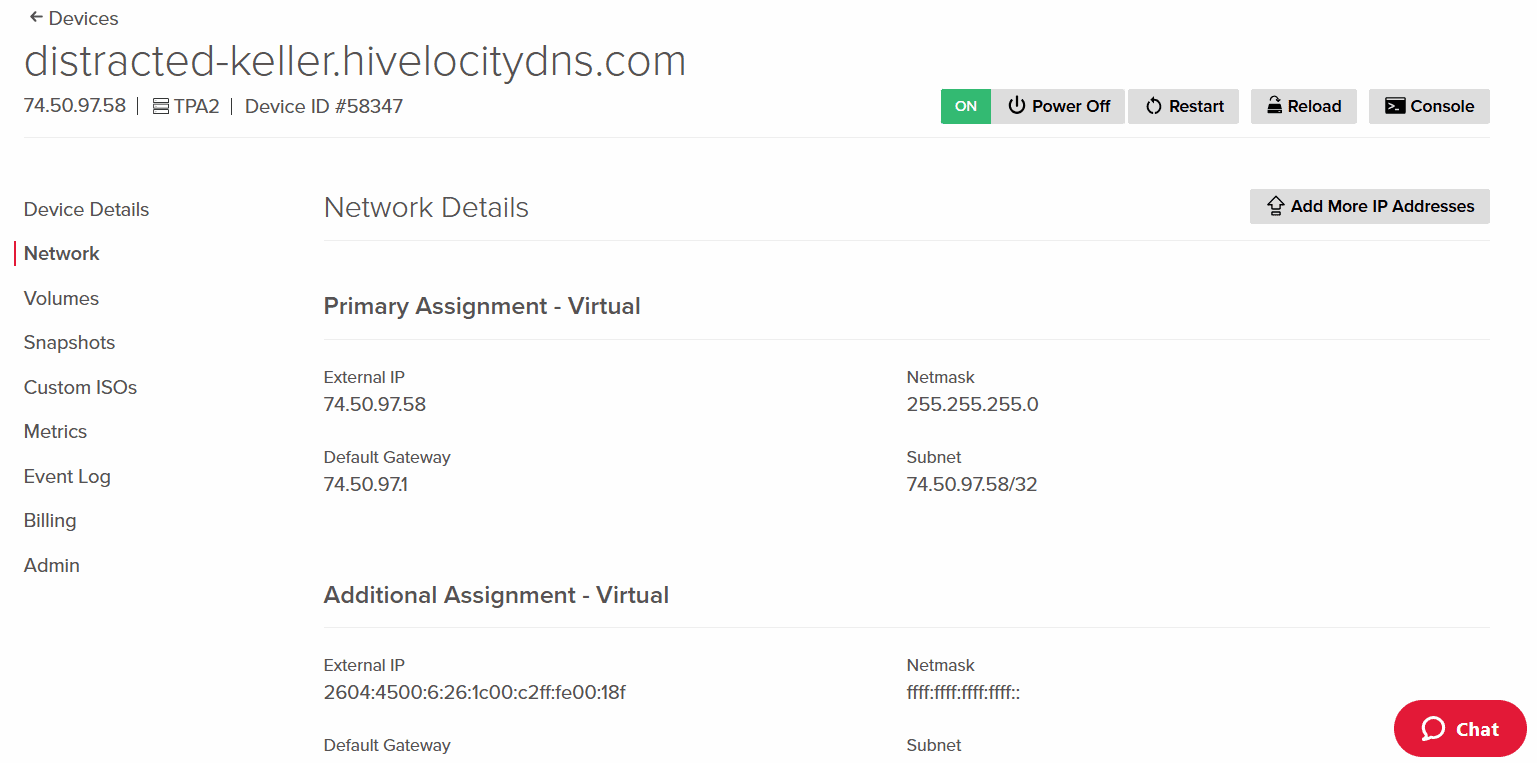
Volumes Tab
The Volumes Page of your VDS contains information involving the disk space you’ve purchased and assigned to your system. The information on this page includes the following items:
- The disk size being occupied.
- The time of disk creation.
- The ability to add a disk or more as needed.
- The ability to create a snapshot of a specific disk.
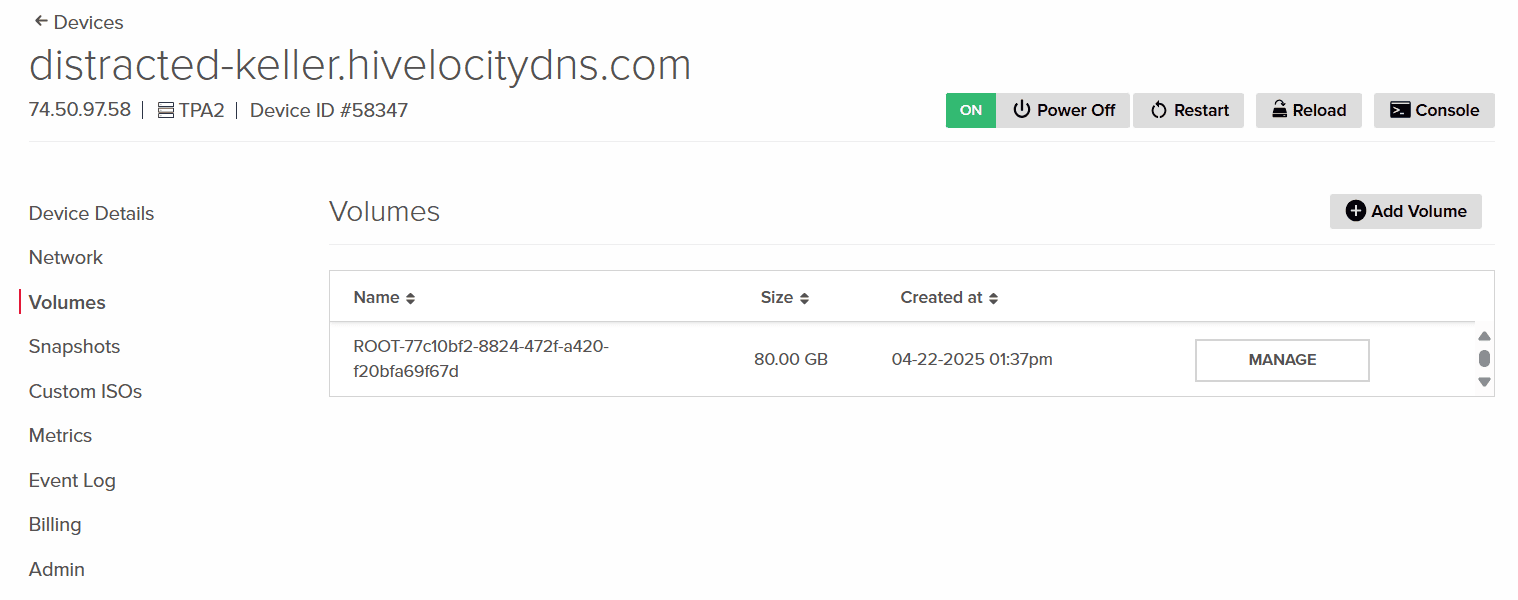
Snapshots Tab
The Snapshots Page of your VDS includes all existing snapshots and any existing schedules along with the ability to create snapshots as needed.
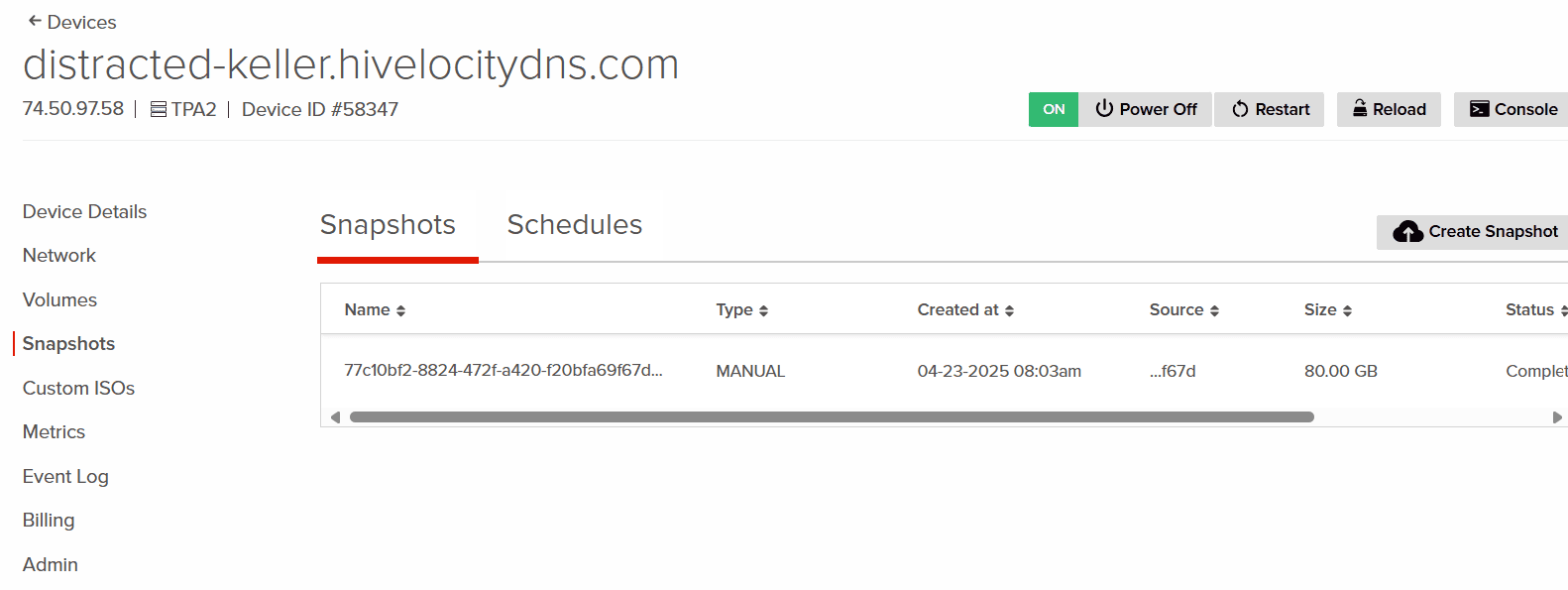
Custom ISOs Tab
The Custom ISOs Page of your VDS allows you to upload and use ISOs as needed so that you can mount them and use them as required.
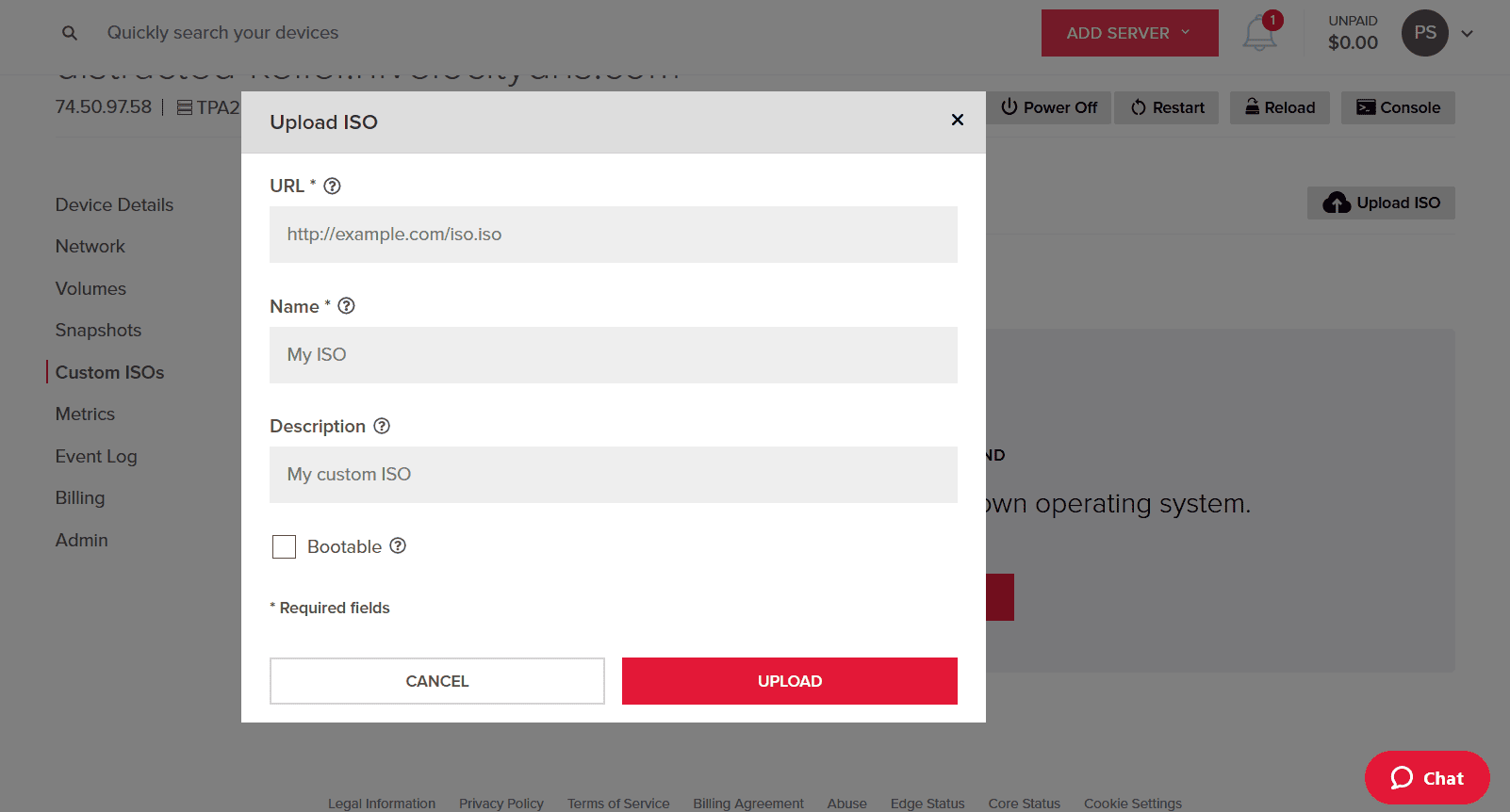
Metrics Tab
The Metrics Page of your VDS includes information involving server load, CPU, memory, and disk utilization in various time ranges for you to evaluate and review your VDS usage.
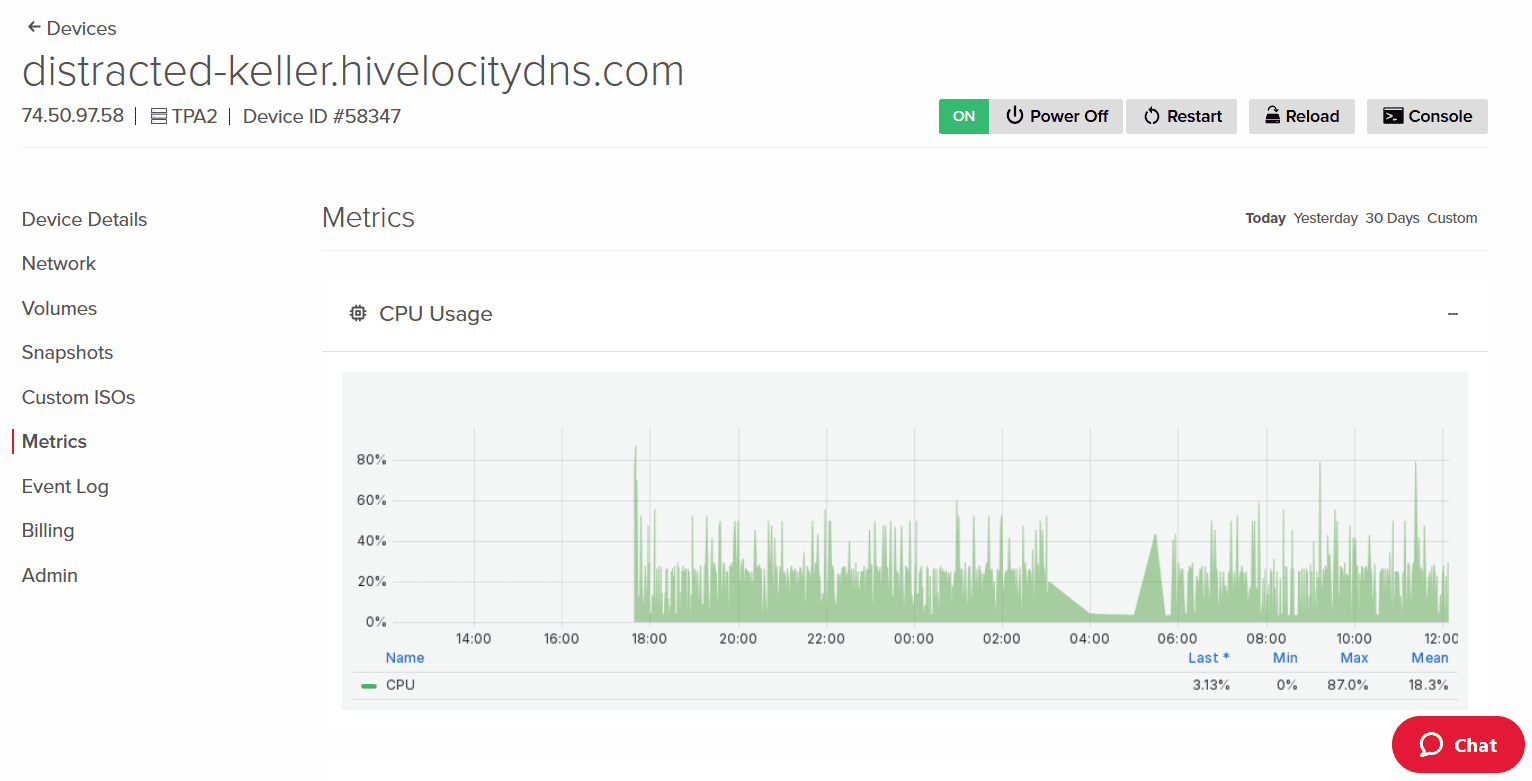
Event Log Tab
The Event Log Page of your VDS allows you to review any events that involve your VDS. VDS events include stopping and starting your VDS, along with other activities.
This type of information will allow you to determine whether any actions were taken on your VDS by you or your team members and to review the date and time when actions occurred in case troubleshooting is required.

Billing Tab
The Billing Page of your VDS includes information relating to any payments and dates that are involved with your VDS.
Information that can be found on the page includes:
- Your recurring billing amount.
- Your next due date.
- Your billing cycle.
- Your registration date.
For any concerns or questions with your billing cycle, please reach out to our Billing department during working hours for resolution.
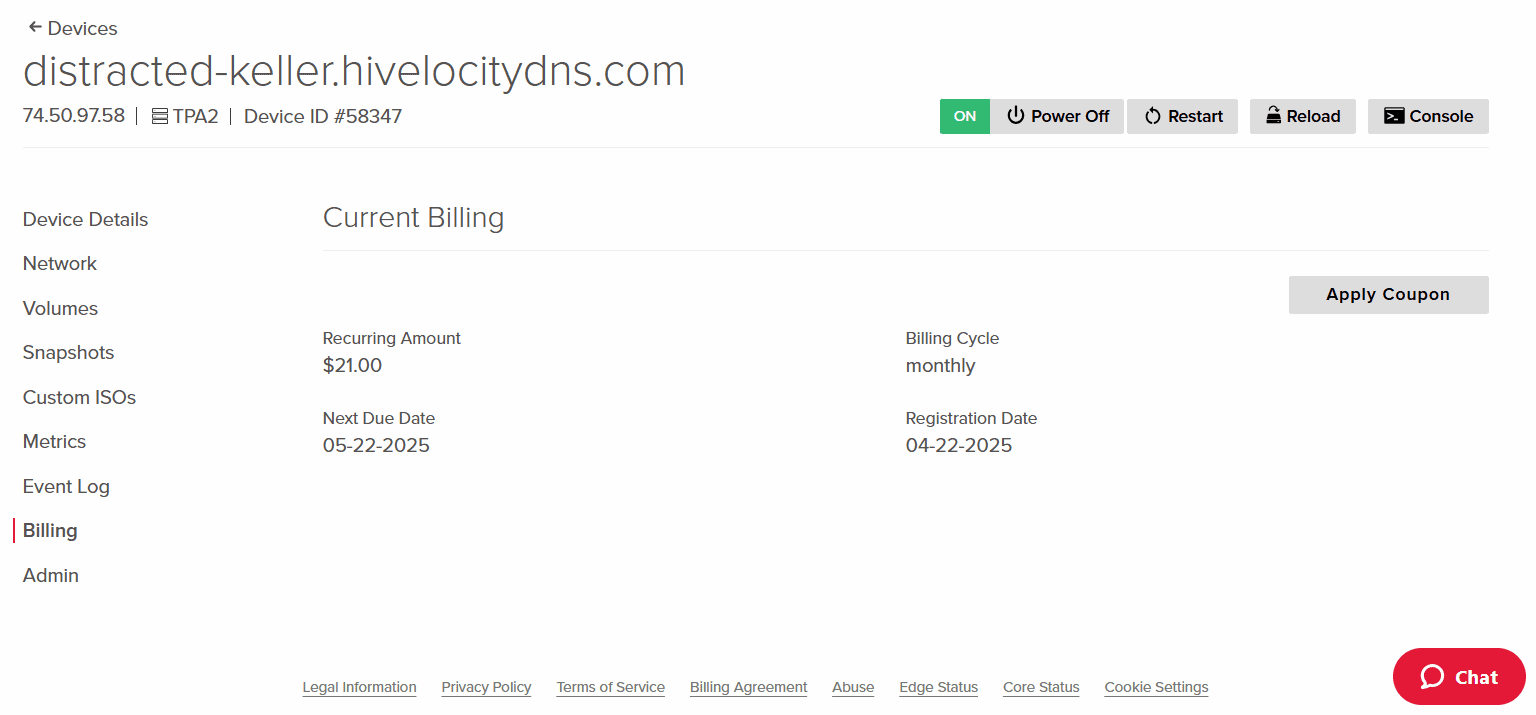
Admin Tab
The Admin Page of your VDS includes the option to set a hostname for your device, create a custom device name for device recognition, and the option to cancel your device and halt services.
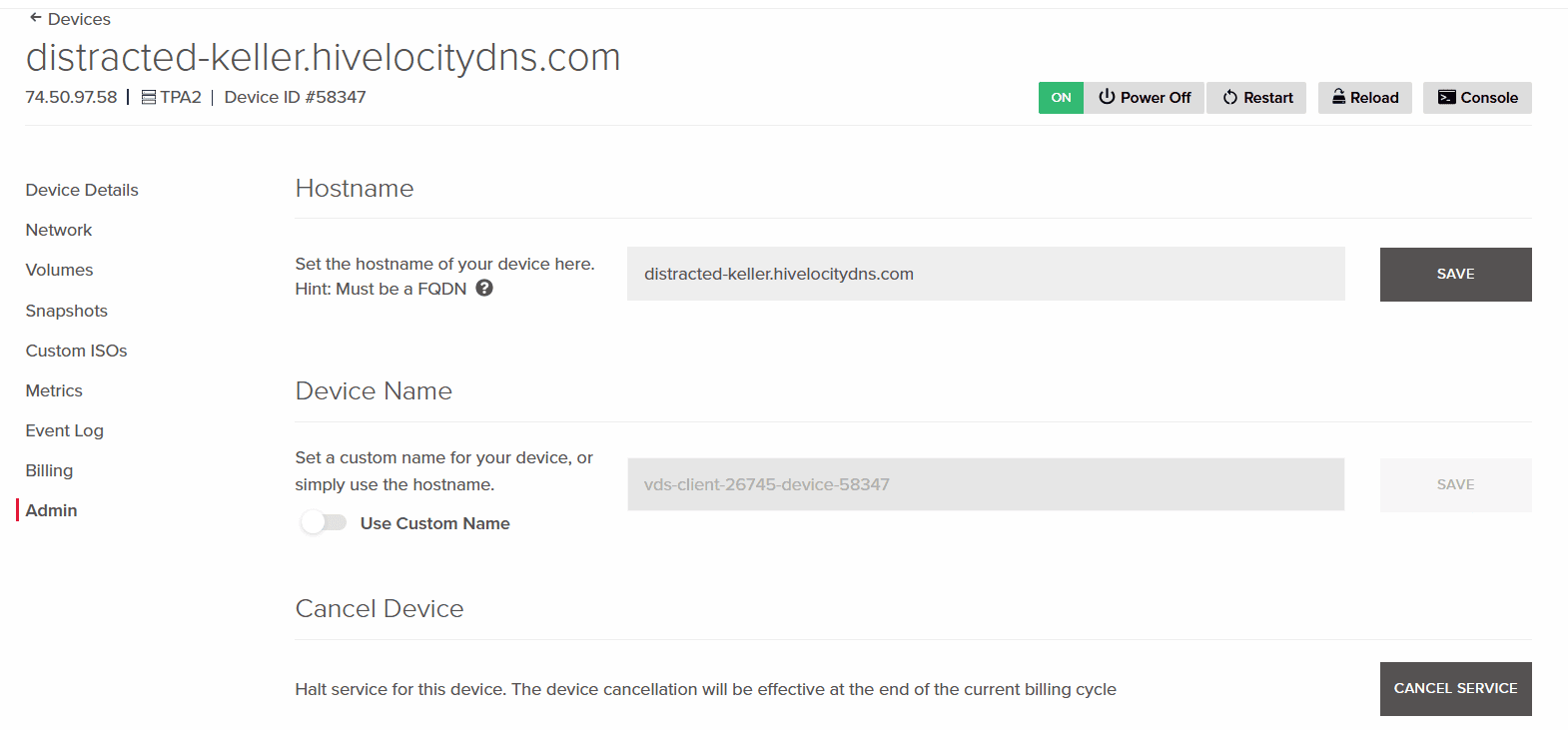
Further Assistance
For any further assistance involving the portal or devices, do not hesitate to reach out to the Hivelocity Support team via a chat, support ticket, or phone at 888-869-4678.
– by Pascal Suissa